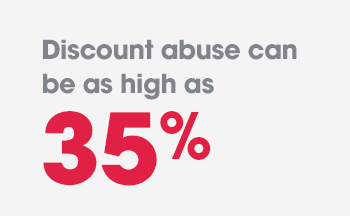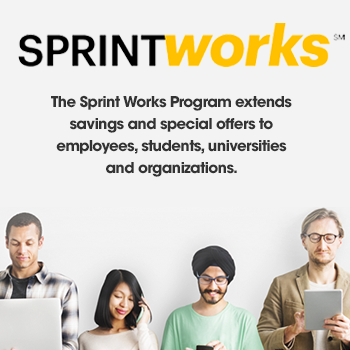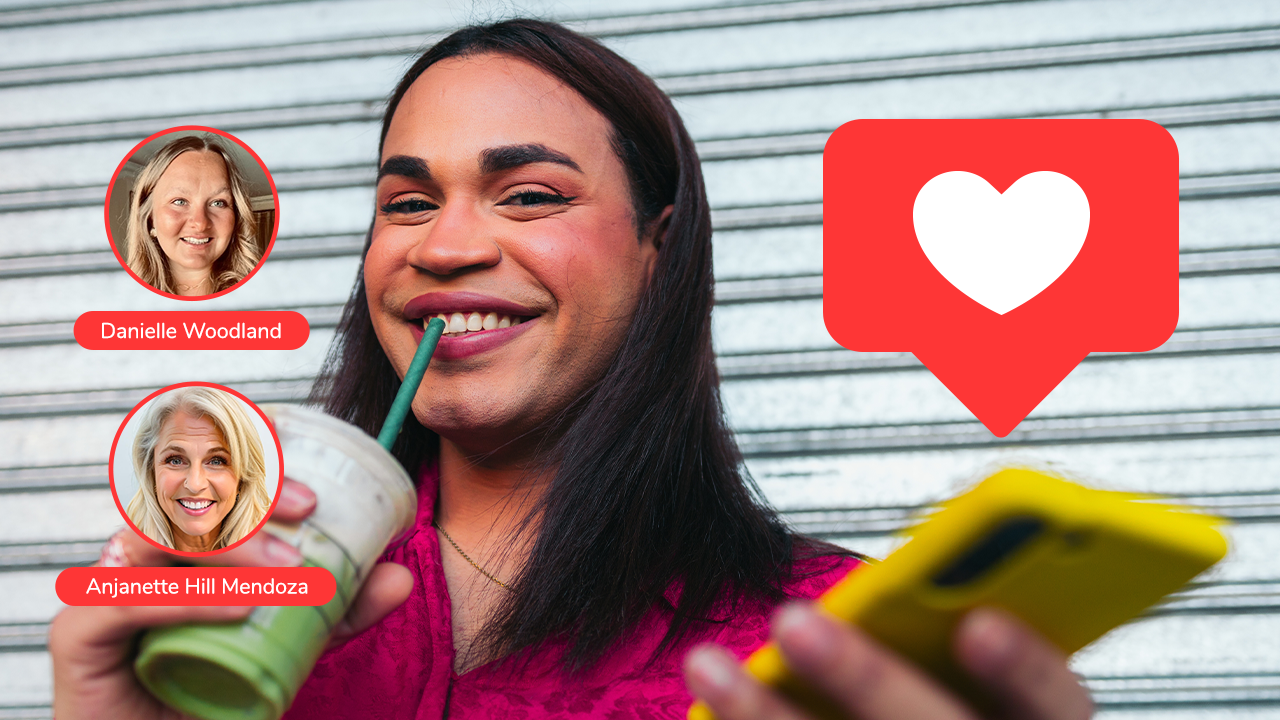Employee perks are the bomb. Who doesn’t love getting an exclusive discount on a wireless plan or at a favorite retailer, just for showing up to work? Employee perks improve people’s quality of life and engender company loyalty.
Likewise, employee discounts are the kind of “cherry-on-top” benefit that helps employers recruit rockstar talent. In fact, the number of programs and benefits a company offers is one of candidates’ top considerations when looking for new jobs.
And brands that offer employee discounts love them because they’re a great strategy for reaching new, captive audiences who are eager to leverage the discount.
There’s just one problem with employee discounts: people cheat to get them.
Four Reasons Employee Discount Abuse is Rampant
The greatest obstacle to running a profitable employee discount program is fraud, and preventing fraud can be an uphill battle for four reasons.
01 Employees Routinely Use Discounts after They Leave a Company
Companies offering discounts or pre-negotiated corporate rates, such as those for hotels and rental car agencies, often issue a discount code. But it’s easy to continue using the code indefinitely because companies rarely update it or reverify their employment status. And if companies do ask for proof, and the exchange is in person, a consumer can just show an expired ID, such as an old business card.
02 It’s Easy to Lie
If there’s no official employee verification program in place, an honest face, a fake ID, or a “borrowed” coupon code makes it easy for non-employees to take advantage of employee discounts.
03 Brands Are Often Unsuspecting Victims
A global chain recently discovered that nearly two out of three people redeeming an employee discount weren’t actually qualified employees.


04 Policing Employee Discount Abuse Takes Constant Surveillance
People change jobs an average of 12 times during their careers. And in 2018, the median employee tenure was approximately four years. So, someone who was eligible for the discount last year might not be eligible now.
Code Sharing and Manual Verification are Major Culprits
Many companies use coupon codes to implement their employee discount programs. Unfortunately, these codes can easily go viral and are often fraudulently redeemed by ineligible shoppers. Fraudulent redemption of exclusive offers can be as high as 35%.
Some brands try to prevent employee discount abuse by verifying eligibility, but they use a manual process. Manual verification not only strains internal resources, it is time-consuming. This can result in lost revenue when consumers who don’t want to go through a tedious verification process abandon the offer and shop elsewhere.
Manual verification can also lead to a poor customer experience. Take, for example, a situation in which a guest is checking into a hotel and wants to use an employee discount she’s eligible for. If the hotel clerk asks for proof of employment but the guest doesn’t have it on hand, the guest is annoyed and the hotel brand is tarnished.


Digital Verification is the Solution
Smart brands like T-Mobile and Sprint prevent employee discount abuse by using SheerID’s Digital Verification Platform to validate consumers’ employment. Digital verification ensures that employment verification is fast, easy, and employee-friendly.
Here’s how it works:
- The consumer enters basic information, such as first and last name, home address, and the company they work for. (Social security numbers are not required.)
- Their active employment is instantly verified using authoritative data sources that include everyone working for the company and its subsidiaries.
- If needed, document review ensures 100% coverage and can use pay stubs, work badges, or other forms of identification the brand chooses.
- The entire user experience is in-brand (no need to go to an outside verification website), ensuring a seamless and friction-free process.
Sprint’s Programs Increase Brand Awareness and Customer Acquisition
Sprint has embraced employee discounts as a way to extend its reach and promote its identity as a customer-friendly company. Leading brands that offer Sprint discounts to their employees include Bank of America, Boeing, Coca-Cola, Microsoft, Disney, and Comcast.
Re-verification Provides Ongoing Protection and Encourages Loyalty
When brands use digital verification to implement an employee discount program, they can prevent consumers from using the discount when employment ends, while also encouraging former employees to remain customers. Brands do this by:
- Providing the discount for a predetermined period of time (for example, one year).
- Notifying customers before the period ends and giving them an opportunity to re-verify.
- Offering individuals who don’t re-verify a temporary discount to encourage and ease their transition to full price.
Sprint’s exclusive offer programs for employees, called Sprint Works, also includes discounts for:
- Teachers, administrators, and other education employees.
- Healthcare employees.
- Federal government employees.
- US Postal Service employees.
- City, state, local government employees.
This marketing strategy has helped Sprint acquire a range of new, high-value customers and deepen the company’s connection with them.


How Digital Verification Drives Successful Employee Discount Programs
Companies like Sprint and T-Mobile that use digital verification to secure their employee discounts reap a host of benefits, including:
- Eliminating the time and resources that would be required by an internal verification process.
- Protecting their offers and preventing revenue losses due to code sharing.
- Extending their reach by allowing the inclusion of employees who aren’t issued corporate email addresses (including many who work in service industries like restaurants or construction).
- Expanding their program options by creating single-use codes or establishing reward levels based on business rules.
- Increasing conversions by eliminating the need to collect personally identifiable information (PII), such as social security numbers.
- Enabling them to track usage, review metrics, and optimize their programs.
- Creating a frictionless, in-brand experience that shoppers love.








